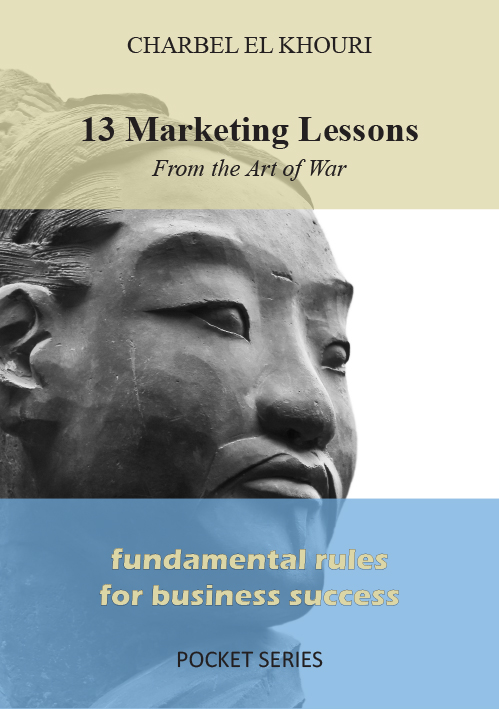Sun Tzu, a Chinese military strategist and general, was known for being the author of “The Art of War”, a dissertation on military strategy, which was also known as “The Thirteen Chapters”. His writing has inspired military generals, politicians and strategists for thousands of years and I believe that it will keep doing so for thousands to come. His book, that I have read almost twelve years ago, has given me instrumental guidance and insight in my field of work, “marketing”. I hope to share with you these valuable lessons that I learned from “The Art of War” as I continue my endeavor to grow my marketing skills.
In homage to “The Thirteen Chapters”, I chose to highlight thirteen lessons in marketing that one could learn from Sun Tzu’s “The Art of War” and these are directly taken from the following translations of statements found in his book:
- Avail yourself also of any helpful circumstances over and beyond the ordinary rules.
- As circumstances are favorable, one should modify one’s plans.
- All warfare is based on deception.
- If your opponent is secure at all points, be prepared for him.
- If your opponent is in superior strength, evade him.
- If your opponent is taking his ease, give him no rest.
- Attack him where he is unprepared, appear where you are not expected.
- These military devices, leading to victory, must not be divulged beforehand.
- The general who wins a battle makes many calculations in his temple ere the battle is fought.
- When your weapons are dulled, your ardor damped, your strength exhausted and your treasure spent, other chieftains will spring up to take advantage of your extremity.
- A wise general makes a point of foraging on the enemy.
- That there may be advantage from defeating the enemy, they must have their rewards.
- In the practical art of war, the best thing of all is to take the enemy’s country whole and intact; to shatter and destroy it is not so good.
These thirteen extracts tackles important lessons in marketing that are at the core of the success of every business. In marketing terms these will reflect into the following concepts:
- Always look out for opportunities
- Establish a change friendly environment
- Window dressing
- Competitor analysis
- Avoid direct competition
- Keep the wheels spinning
- Strength, Weakness, Opportunities and Threat
- Trade secrets
- Marketing plan
- Smart marketing
- Second mover advantage
- Incentive marketing
- Why marketing matters in mergers and acquisitions
These are not the only marketing lessons that you could learn from “The Art of War”. If you enjoy this book as much as I enjoyed discovering it and learning it throughout my work life, I encourage you to make these discoveries on your own and to explore what else you could apply in your marketing career from “The Art of War” and share them with the rest of us on this blog comments.
Happy reading to all.
About the Author: Charbel El Khouri
A senior consultant for business startups and co-founder at C&H Communications FZCO, marketing and business development consultancy firm in Dubai in the United Arab Emirates, Charbel brings more than 20 years of extensive expertise in handling wide range of business activities and possessing an inquisitive mind able to seek out and connect possible areas of any business setting. He understands the evolving nature of competitive markets and is skilled in handling gamut of activities such as marketing, business development, ecommerce, finance, operation, supply chain, and human resources management.

